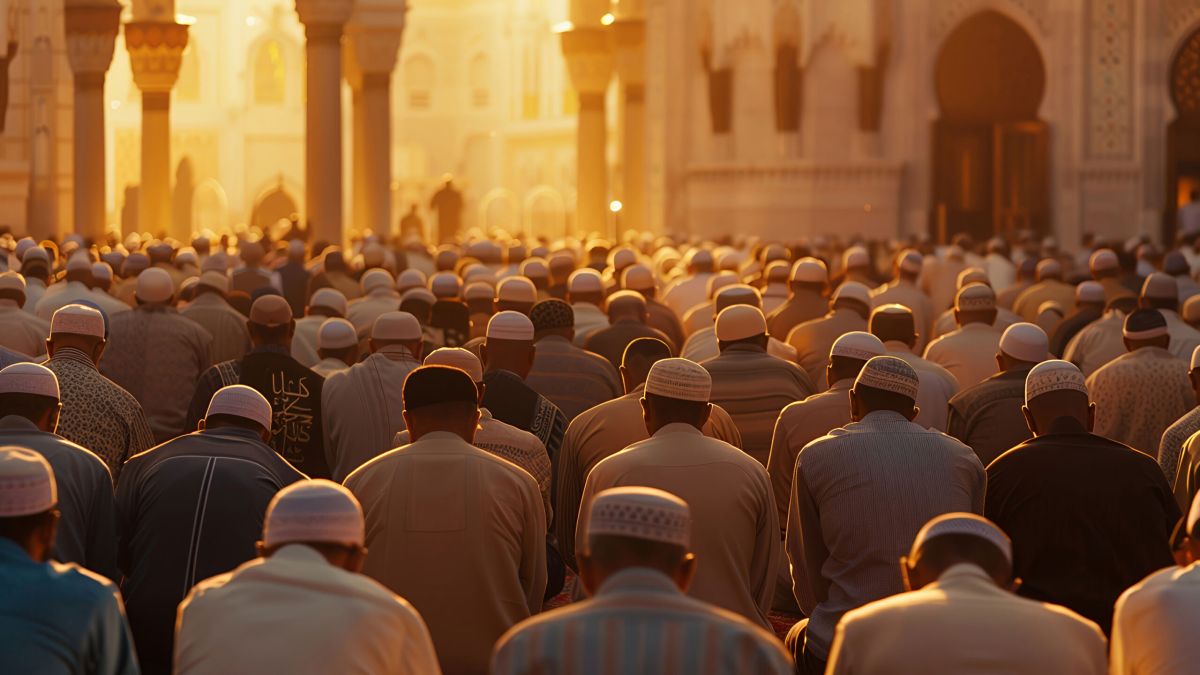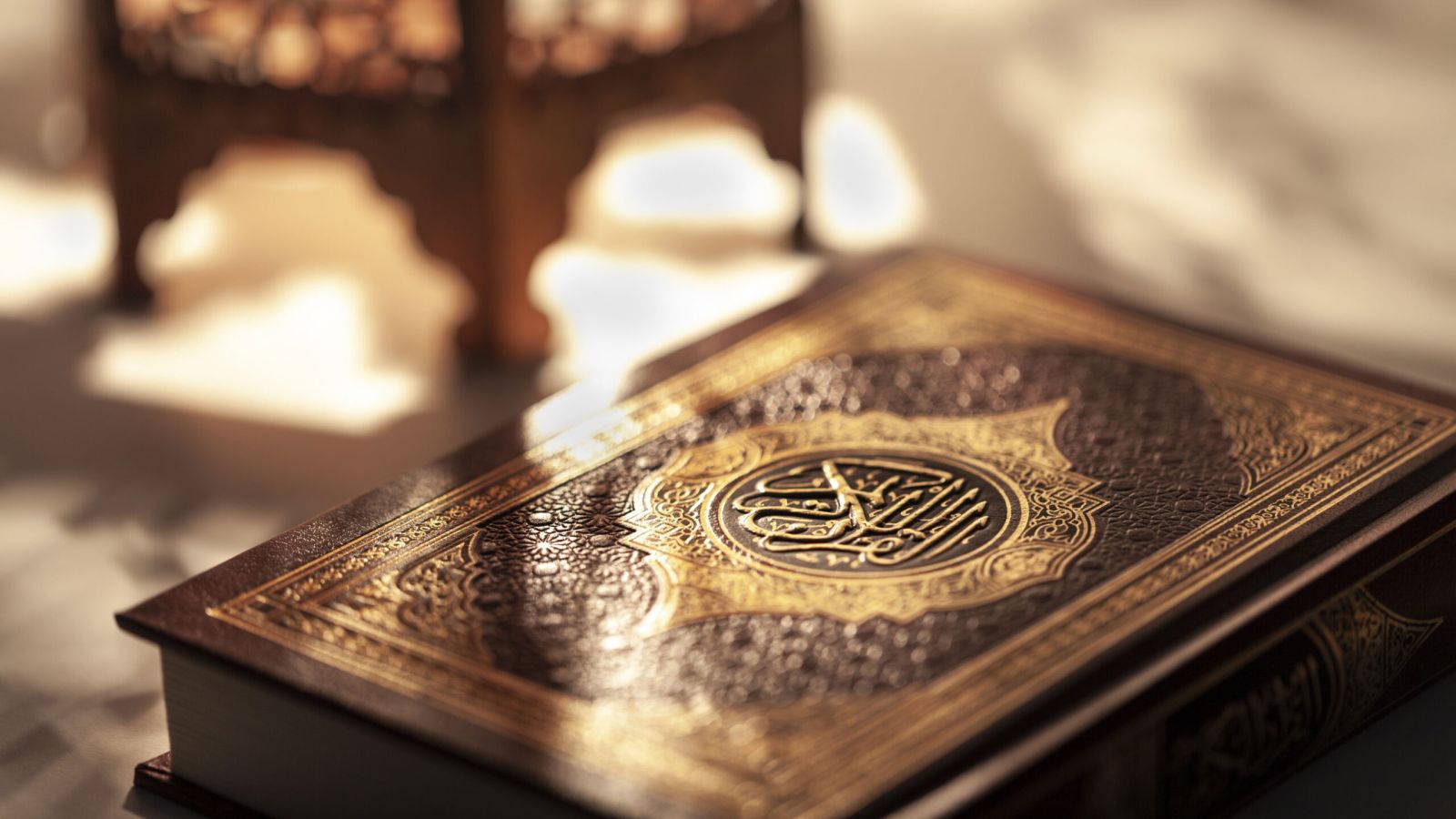Rulings Related to Taking Breaks When Performing Tarāwīḥ
Imām Muḥammad ibn Ṣāliḥ al-ʿUthaymīn, The Permanent Committee for Islamic Research and Fatāwá, Imām ʿAbd al-ʿAzīz ibn Bāz, Imām Muḥammad Nāṣir al-Dīn al-Albānī


The Ruling on Resting After Every Four Rakaʿāt in the Tarāwīḥ Prayer
Imām Muḥammad ibn Ṣāliḥ al-ʿUthaymīn:
The tarāwīḥ prayer is aptly named because the people performing it would lengthen their rukūʿ, their sujūd, and their standing, such that upon praying four rakaʿāt, they would rest (linguistically tarāwīḥ means to rest, relax or seek repose). They would pray four (rakaʿāt) then rest, then another four and rest, then three (i.e. witr). The evidence for this is the ḥadīth of ʿĀʾishah (رضي الله عنها) who said: “The Prophet (صلى الله عليه وسلم) would not exceed eleven rakaʿāt [of night prayer] in Ramaḍān or other than it. He would pray four rakaʿāt—and do not ask about their extensive duration and the degree of excellence with which they were performed—then he would pray another four—and do not ask about their extensive duration and the degree of excellence with which they were performed—then he would pray three”.1 2
As for her saying: “He would pray four rakaʿāt”, there are some that may interpret this to mean four rakaʿāt prayed together with a single taslīm. However, this is one possible interpretation that must be refined based on the other aḥadīth that are considered plainly evident in this matter, which is his (صلى الله عليه وسلم) saying: “The night prayer is performed in units of two”.3 In consideration of both narrations, we may interpret the former to mean that the ṣalāh is performed in units of two by saying the taslīm after every two rakʿahs. The number four is mentioned specifically because there was a break in which they would rest after the performance of the four rakʿāhs, which was not present before it [i.e., after the first two rakʿahs].4
Common Innovations Performed During Breaks in the Tarawīḥ Prayer
[Q]: In our country, upon the completion of every four rakaʿāt during tarāwīḥ, our imām will read Sūrat al-Ikhlāṣ thrice. He also encourages us to do so. Is this practice permissible?
The Permanent Committee for Islamic Research and Fatāwá responded:
[A]: The recitation of Surat al-Ikhlāṣ thrice after every four rakaʿāt when performing tarāwīh is an innovation; a completely baseless practice insofar as the pristine Islamic legislation is concerned. The Prophet (صلى الله عليه وسلم) said: “Whoever innovates in this matter of ours [i.e., Islām] that which is not from it will have his innovation rejected”. 5
[Q]: There are certain individuals amongst us that, following every two rakʿah [in tarawīḥ], invoke Allāh saying: “We ask Allāh for guidance, His pleasure, and to pardon us for what has transpired”.
Imām ʿAbd al-ʿAzīz ibn Bāz answered:
[A]: This is a baseless practice. A person may invoke Allāh with whatever is easy for him but there is no specific invocation that is said after every two taslīms. If a person wants to invoke Allāh in that brief time, then there is nothing wrong with this. However, specifying a particular invocation for this time is wrong regardless of whether it is this invocation or other than it.6
[Q]: When performing tarāwīḥ, following the first two rakʿahs, our imām will ask Allāh to commemorate the Prophet (صلى الله عليه وسلم) in the highest assembly, then he will invoke Allāh for the khulafāʾ(the Four Rightly Guided Caliphs). What is the ruling of this practice?
Imām ʿAbd al-ʿAzīz bin Bāz answered:
[A]: It is most appropriate that such practices are avoided completely as they are baseless. Rather, it is considered an innovation.7
[Q]: We have a practice during the blessed month of Ramaḍān wherein, upon completion of tarāwīh, we perform a congregational duʿāʾ with which we conclude the prayer. What is the ruling of this practice?
Imām ʿAbd al-ʿAzīz bin Bāz answered:
[A]: The same as before: This is also an innovation. Remembrances and invocations should not be said congregationally. Every individual person should invoke Allāh for himself and the Muslims as a whole, but his invocation should remain between himself and his Lord.8
Teaching and Exhorting During the Breaks in the Tarawīḥ Prayer
[Q]: After completing four rakaʿāt of tarāwīh, what is the ruling on the imām standing to remind and exhort the people of the annals of Allāh9 (His blessings, His goodness towards them, His punishment of the past disbelieving nations such that people show gratitude for His blessings and fear for His punishment). Is this permissible or not?
Imām Muḥammad Nāṣir al-Dīn al-Albānī answersed:
[A]: The night prayer is a specialised, specific form of worship wherein knowledge and teaching is not the primary goal. Rather, the goal that is sought from its performance is the purification of one’s soul by means of completely turning to Allāh—the Blessed, the High—with concentration, through the performance of ṣalāh consisting of standing, bowing, and prostrating, and engaging in Allāh’s—the Exalted in Might—remembrance. Thus, the environment that is cultivated around the performance of the night prayer is most unaccepting of being muddied, contaminated, or diluted by busying oneself with other than this primary purpose. Despite the fact that teaching and exhorting the people is definitely a form of worship. Rather, it is superior to mere worship as the Prophet (صلى الله عليه وسلم) said: “The blessings attributable to gaining Islamic knowledge are superior to the blessings associated with worship. And piety is the best manifestation of your religiosity”10. That is, the supererogatory, voluntary seeking of knowledge is more replete with goodness according to Allāh—the Exalted in Might—than performing supererogatory, voluntary worship. Therefore, actively seeking Islamic knowledge and traversing the avenues that lead to its ultimate attainment is better than performing supererogatory acts of worship.
However, it may be that an act ordinarily considered less blessed than another act surpasses it under certain specific circumstances. For example, the Prophet (صلى الله عليه وسلم) forbade the recitation of the Qurʾān while in rukūʾ and sujūd. Instead, we say the legislated, well-known remembrances and invocations when in those positions. Considering this, should we conclude that these adhkār are superior to the recitation of the Qurʿān? Of course not! But we say: In this position specifically, these remembrances are superior to the recitation of the Qurʾān. This does not stipulate the establishment of a fundamental, encompassing ruling of one being better than the other but, rather, a superiority that is limited to a specific situation. This is the same as when we sit in the jalsah position to recite the tashahhud. Why do we not recite Surat al-Fātiḥah? Does this mean that the tashahhud is superior to Surat al-Fātiḥah? Again, the answer is no, but if we were to recite the Fātiḥah in that position, we would have perpetrated an act of disobedience but if we recite the tashahhud in that position we have followed the example of the Prophet (صلى الله عليه وسلم).
Therefore, true wisdom is in situating everything in its proper place. Thus, when the Prophet (صلى الله عليه وسلم) delivered the legislation to us from his Lord of performing Ṣalāt al-Tarāwīḥ in Ramaḍān, did he ever use the gathering before him as an opportunity to exhort or teach them? The answer is no. Rather, it was a pure, unadulterated form of worship. Therefore, in my opinion, the act of delivering a lecture as a reminder to the people during their performance of tarāwīḥ is not legislated. Except in a circumstance wherein such a reminder is required like, for example, if the imām notices a person in the congregation not performing the ṣalāh in a proper manner, so he uses this pause (in the tarawīḥ prayer) as an opportunity to teach him. As for habitually adopting an objectively random time point during the performance of the night prayer, and designating it as a time for the delivery of a reminder, this represents an innovation in this religion.
إِنَّ فِي ذَٰلِكَ لَذِكْرَىٰ لِمَن كَانَ لَهُ قَلْبٌ أَوْ أَلْقَى السَّمْعَ وَهُوَ شَهِيدٌ
“Verily, therein is indeed a reminder for him who has a heart or gives ear while he is heedful.”
(Qāf, 50:37)11
Imām Muḥammad ibn Ṣāliḥ al-ʿUthaymīn:
My opinion regarding this practice is that it should be avoided due to the following:
- This was never practiced by the pious predecessors.
- There are some people who may wish to depart expeditiously after the conclusion of the tarāwīḥ, returning home to perform tahajjud. The incorporation of this reminder makes this more difficult for them, as it is associated with deeper feelings of drowsiness and lethargy (as they will return home later). Also, it is a form of effectually forcing people to listen to an exhortation. It is well-known that the reception to misplaced exhortations is often poor and, as such, the harm attributable to them is often greater than the proffered benefit. For this reason, the Prophet (صلى الله عليه وسلم) would bestow reminders upon his companions on occasion without overburdening them or disseminating the same reminder repeatedly.
In consideration of this, my opinion is that complete avoidance of this is more suitable. If, however, the imām desires to give the congregation a reminder then let him do so after the conclusion of the tarāwīḥ. In this way, the choice of whether to remain in the masjid or depart is wholly entrusted to individual choice.12
Endnotes:
[1] Authentic: narrated by al-Bukhārī: 1147.
[2] Source: Al-Sharḥ al-Mumtiʿ 4:10-11.
[3] Authentic: narrated by Ibn Mājah: 1317 and graded authentic by Shaykh al-Albānī in Ṣaḥīḥ Sunan al-Nasāʾī: 1574.
[4] Source: Jalasāt Ramaḍāniyyah 5:14
[5] Source: Fatāwá al-Lajnah al-Dāʾimah 6:95.
[6] Source: Fatāwá Nūr ʿalá al-Darb 9:480.
[7] Source: Fatāwá Nūr ʿalá al-Darb 9:482.
[8] Source: Fatāwá Nūr ʿalá al-Darb 9:484.
[9] Referencing Ibrāhim, 14:5
وَلَقَدْ أَرْسَلْنَا مُوسَىٰ بِآيَاتِنَا أَنْ أَخْرِجْ قَوْمَكَ مِنَ الظُّلُمَاتِ إِلَى النُّورِ وَذَكِّرْهُم بِأَيَّامِ اللَّهِ ۚ إِنَّ فِي ذَٰلِكَ لَآيَاتٍ لِّكُلِّ صَبَّارٍ شَكُورٍ
And indeed We sent Mūsá (Moses) with Our Āyāt (signs, proofs, and evidences) (saying): “Bring out your people from darkness into light, and make them remember the annals of Allah. Truly, therein are evidences, proofs and signs for every patient, thankful (person).””
[10] Authentic by corroboration: narrated by al-Ṭabarānī: 3960 in al-Awsuṭ and graded authentic by corroboration by Shaykh al-Albānī in Ṣaḥīḥ al-Targhīb wa al-Tarhīb: 68
[11] Source: Jāmiʿ Turāth al-ʿAllāmah al-Albānī 7:130-131
[12] Source: Liqāʾ al-Bāb al-Maftūḥ 6:229.
Compiled and translated by: Riyāḍ al-Kanadī
Most Popular: Last 30 Days

















